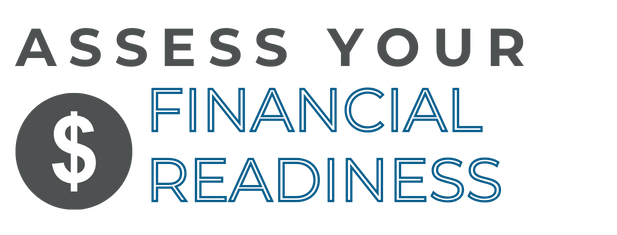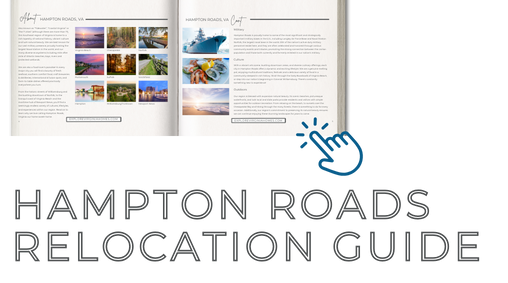HOME BUYING 101
Purchasing a home is both an exciting & emotional experience and a key component of the American Dream. Not only does it provide unmatched financial stability, but creative freedom and a deep sense of belonging.
Here is your crash course on the essential steps, expert tips, and valuable resources that will guide you through every stage of your home-buying journey with confidence.


STEP ONE: Hire the Right Agent
- New laws are now in place from the National Association of Realtors (NAR) that require Buyers to sign a written agreement with their chosen realtor before being able to tour homes. This agreement lays out the services your realtor provides, the cost of those services, and how the agent will be compensated. While it's still likely that the seller of the home you buy will offer a concession to cover your agent, it isn't a guarantee. We strongly recommend interviewing multiple buyer's agents to compare their experience and professionalism, ensuring you find someone you connect with and who is best qualified to represent you effectively.
- Meet for a private consultation
- Discuss the entire purchasing process according to your unique needs, circumstances, and timeline
STEP TWO: Get Pre-Approved
- Review your specific Mortgage Loan Options with your Lender
- Discuss your comfortable monthly budget to ensure you won't be "house broke"
- Provide necessary documents
- Receive Pre-Approval Letter
STEP THREE: Begin Your Home Search
- Determine needs vs wants and desired commute times/locations
- Stay within your desired budget
- Don't rush, try to remove emotion from your decision making, and be realistic with your expectations and finances
STEP FOUR: Make an Offer
- Review the Comparative Market Analysis prepared by your Realtor
- Discuss expenses associated with the property like closing costs, monthly payments, HOA fees, etc. to make sure the home is a sound financial decision
- Strategize your offer structure and submit to the Listing Agent & Seller for review
STEP FIVE: Execute Contract
- AKA...Offer Accepted! Congratulations! You're now Under Contract to purchase this home!
- Lock in your interest rate with your Lender
STEP SIX: Home Inspections
- Hire and schedule your Home & Moisture/Termite Inspections to uncover any issues or necessary repairs to avoid buying a money pit
- Review results with your Realtor and negotiate any repairs to be completed
- Your agent will discuss whether getting a Survey or Elevation Certificate is necessary
STEP SEVEN: Appraisal
- The closing attorney will order a property appraisal to determine your home's official current market value
- You will potentially renegotiate terms with the seller according to the appraisal results
STEP EIGHT: Title Search
- The closing attorney will notify all parties of any underlying property conditions or issues prior to closing
STEP NINE: Final Walk-Through
- Take one more walk through of your home a few days prior to closing to ensure no changes have been made to the property. No need for surprises just before your closing!
STEP TEN: Closing
- AKA...CLOSING DAY! Sign all documents and receive the keys to your new home!


Now that you understand the steps to homeownership, read on to explore the intricacies that occur before, during, and after the closing table.


Before starting the journey to homeownership, assessing your financial readiness is crucial. And whether you're buying a home or not, just by building a habit of regularly evaluating your financial health you are taking a key step toward achieving long-term financial stability.
Evaluate your credit score, savings, and current debt levels.
A healthy credit score can significantly impact the interest rates you qualify for, while sufficient savings are necessary for a down payment, closing costs, and any unexpected expenses that may arise. Managing your debt is also essential, as lenders will look at your debt-to-income ratio to determine your ability to take on a mortgage.
Understand how much house you can realistically afford.
You can use our Mortgage Calculator to estimate a monthly payment based on the price of a home, or better yet, get a Pre-Approval from a trusted mortgage professional. There are many loan types, and each loan type has its own set of requirements and benefits, so understanding which ones you qualify for will help you make informed decisions.
Obtain a mortgage Pre-Approval letter from your Lender.
This step is critical. A Pre-Approval letter not only gives you a clear picture of your budget but also signals to sellers that you are a serious buyer, giving you a competitive edge in the market. Not to mention, most Sellers will not entertain an offer that does not include this letter. During the process, your Lender will evaluate your financial situation to determine how much they are willing to lend. This letter will include vital information including your maximum loan amount, your maximum home purchase price, the required down payment, the interest rate you're likely to pay, and the types of loans you've qualified for.


Buying a home is one of the most significant financial decisions you'll make, and it can be easy to overlook actions that you don't realize could derail you in the excitement of finding your dream property. To help you make the wisest decisions and navigate the process smoothly, here are some of the most common mistakes homebuyers make - and how you can avoid them! Understanding these pitfalls can save you time, money, and a lot of stress.
Overview:
- Not getting pre-approved for a mortgage
- Overlooking hidden costs and expenses
- Skipping the home inspection
- Making emotional decisions
- Failing to research mortgage options
- Ignoring future resale value
- Making major financial changes before closing


Many home issues are identified during the Home, and Moisture & Termite Inspections. Your agent will assist you in requesting and negotiating any repairs through the Property Inspection Contingency Addendum (PICA) form. While some issues in a home may be cosmetic, others could have more substantial implications for the property's foundation. In either case, it's essential to know when to continue negotiations and, if certain requested repairs are not agreed to, when it may be best to walk away. Below are some red flags to watch out for. A trusted agent will ALWAYS point out all issues when helping you find the right home.
1. Signs of Poor Maintenance
Visible neglect, such as peeling paint, water stains, broken fixtures, or an overgrown yard can indicate a lack of regular maintenance.
2. Unusual or Strong Odors
Musty smells sometimes suggest mold or mildew, while other times a strong "pleasant" odor is used to mask underlying problems.
3. Foundation and Structural Issues
Cracks in the foundation, uneven floors, or doors and windows that stick can be signs of structural issues.
4. Electrical Problems
Look for flickering lights, outdated wiring, or a lack of grounded outlets.
5. Water Damage or Leaks
Water stains on walls, ceilings, or floors could indicate past or ongoing water damage.
6. Roof Damage
Missing or damaged shingles, sagging rooflines, or visible wear and tear can signal needed repairs.
7. Pest Infestations
Evidence of pests, such as droppings, nests, or chewed wires and wood can indicate an infestation.
8. Unpermitted Renovations
Modifications without proper permits could lead to legal problems or repairs to bring the home up to code.
9. Neighborhood Concerns
Research crime rates, declining property values, excessive noise, or future development plans.
10. Flood Zones
Properties in flood zones may affect insurance rates, resale value, or safety.
11. Outdated Plumbing
Low water pressure, rust-colored water, or outdated plumbing materials can indicate problems.
12. Listing Discrepancies
If the listing information doesn't match what you see, it may signal potential issues.
13. High HOA Fees
Excessive fees or restrictive rules could impact your monthly costs and quality of living.
14. Unexplained Price
If a home is priced significantly lower without clear reason, it may indicate hidden problems.
15. No Access to Areas
Refused access to attic, basement, or crawl spaces could indicate hidden damage.
16. Poor Drainage
Standing water or erosion could lead to water damage or foundation problems.


CONGRATULATIONS! You've signed the paperwork, you've received the keys, the house is YOURS! ...Now what? Set yourself up for success in the short and long run of homeownership with these helpful tips.

Create a Moving Checklist
Start by making a detailed checklist that includes everything from hiring movers and packing to notifying utility companies and updating your address.
Set Up Utilities and Services
Ensure your electricity, water, gas, internet, and other essential services are set up before moving in.
Familiarize Yourself with the Area
Explore your new neighborhood, locate essential amenities including pharmacies, walk-in clinics and hospitals, and get to know your new routes.

Review Your Homeowner's Insurance Policy
Make sure your policy provides adequate coverage for your property and personal belongings, including protection against natural disasters common in your area. Living in Coastal Virginia, flood insurance is either required based on your zone, or at least worth considering.
Call your Trustworthy Agent for information and contacts for affordable home insurance!
Understand Your Property Taxes
Familiarize yourself with the local property tax rates and payment schedules. Some areas allow you to pay taxes monthly or annually, so budget accordingly.
Understand Your Escrow Account
Most mortgage lenders will require an escrow account as part of your mortgage agreement. After closing, your escrow account manages a portion of your monthly mortgage payment to cover ongoing property taxes and homeowners insurance premiums.

Create a Home Maintenance Schedule
Deferred maintenance can quickly turn into expensive repairs. Develop a seasonal maintenance plan including cleaning gutters, checking for leaks, servicing HVAC systems, and inspecting the roof.
Know Your Home's Systems
Familiarize yourself with your home's plumbing, electrical, and HVAC systems. Know where the main shut-off valves and circuit breakers are located.
Budget for Repairs and Upkeep
Set aside a portion of your monthly budget for ongoing maintenance and unexpected repairs.
Invest in Basic Tools
Equip yourself with essential tools like a hammer, screwdriver set, wrench, pliers, lawn equipment and a ladder to handle minor repairs.
Consider a Home Warranty
A home warranty can provide additional peace of mind by covering the repair or replacement of major home systems and appliances.

Whether it's cosmetic or foundational, regularly inspecting both the major and minor systems of your home will not only bolster your home's energy efficiency and resale value, but can save you thousands by avoiding deferred maintenance costs over time.


These resources below will continue to support you in making informed, confident decisions...wherever you are in your home search journey!
Do you have an important question that you need answered faster? Give us a call today for thorough, zero-pressure solutions. (757) 500-2404

Whether you need a painter or a plumber, we have reliable references so you can keep moving forward. Call your Trustworthy Agent for information and contacts!
Get This Guide as a PDF
Enter your email to receive our complete Home Buying 101 guide, plus exclusive tips for Hampton Roads buyers.




